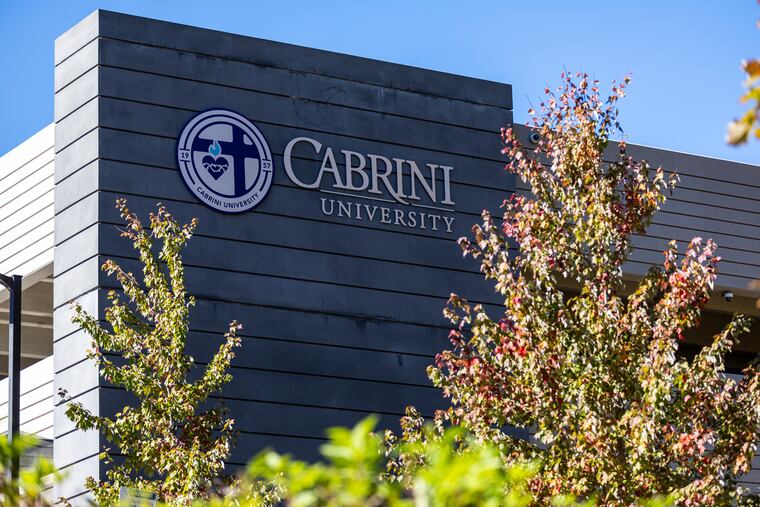Small colleges can benefit students on the margins
As we look ahead to the future of higher education, it’s essential that institutions serving 5,000 students or fewer remain vibrant.

The start of this collegiate school year is bittersweet for those of us who care about higher education at local universities.
Without a doubt, getting to know our students personally and individually each September is one of the most joyful aspects of my job as the president of Neumann University, a Franciscan school in Aston with just over 2,100 enrolled scholars.
But this year, those of us in the local higher education community also feel more than a little bit of sadness and empathy because of the demise of one of our own: In June, our colleagues at Cabrini University will permanently close their doors after almost seven decades of serving students.
Our friends at Cabrini join an ever-growing list of small colleges — those that serve 5,000 students or fewer — that find themselves under threat. According to one analysis, 91 private colleges across the nation have closed, merged, or announced plans to close since 2016.
The crisis facing small colleges, which was exacerbated by the pandemic, may grow more severe still with the approaching “enrollment cliff” in 2025, when we expect a record-low number of first-year undergraduate enrollees.
As we look ahead to the future of higher education, it’s essential that small institutions remain vibrant and continue to provide opportunities for high school graduates in search of an alternative to no college or the nation’s large universities.
The small institution plays an equally critical role in society as the large institution.
In the past five years, just over half of the diplomas I’ve handed out have been to first-generation students. It’s a remarkable accomplishment for these young men and women, and an equally incredible honor for me, as a first-generation student myself.
In America, we talk often about the promises our freedom provides. From my perspective, one of the greatest freedoms we can offer our students is a values-based education that meets them right where they are, and in turn, helps them realize the potential of who they can become.
The path to achieving the American dream can follow different roads — and the small university route is not one to be taken for granted. What makes America a bit different than other nations is the fact that we offer higher education at multiple-sized institutions. Within that structure, the small school has the ability to take risks by admitting students with potential and challenging them to attain it.
No two people learn exactly alike. For some students, a more intimate learning environment is much more effective.
No two people learn exactly alike.
After all, college can help develop a career — not merely be the catalyst to landing a first job. More broadly, college teaches one how to think and learn, so graduates can adjust to changes in the future.
Being a big fish in a small pond suits many just as well.
It is the very essence of the American spirit to recognize individuality. That is why, in a crowded higher education environment, smaller universities can serve our mission by knowing who we are, and by reaching the students best positioned to benefit from an experience on our campuses.
In our university’s Class of 2023, we handed degrees to some students who enrolled without great high school grades and who faced financial barriers.
Those of us who work at independent nonprofit institutions understand that we have to do our part by providing the highest educational value we can. We must make the collegiate experience a cost-effective one for students who say that they are being priced out of pursuing an undergraduate degree. We must help prospective applicants understand that college isn’t just for the financially well-off or the intellectually elite.
University administrations need to find room for students from marginalized and underrepresented communities because their needs are distinct.
What makes America stand apart from anywhere else in the world is its ability to see that distinctiveness and provide a path forward.
Chris Everett Domes is the sixth president of Neumann University in Aston.